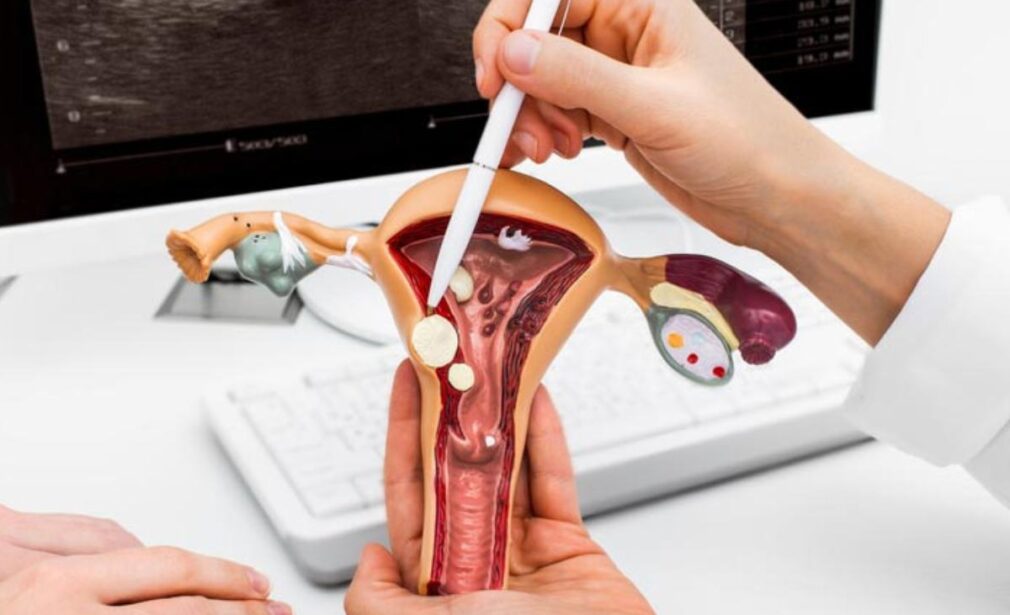Delivering world class medical care
Thin Endometrium: Causes, Diagnosis, and Treatment Options at Simran IVF
A healthy, thick endometrium is crucial for embryo implantation and the success of pregnancy. For women experiencing difficulty conceiving, an issue with the endometrium may be a hidden cause. The endometrial lining is essential for preparing the uterus for a successful pregnancy. If this layer is too thin, it can result in pregnancy complications, miscarriage, or infertility, making it a key factor to address during fertility treatments. If you’re facing issues related to a thin endometrium in Chandigarh, Mohali, or Amritsar, it’s essential to consult with a fertility expert at Simran IVF for accurate diagnosis and effective treatments.
What is the Endometrium?
The endometrium is the innermost layer of the uterus, responsible for thickening and shedding each month during the menstrual cycle. During a typical cycle, the endometrium thickens to prepare for the potential implantation of a fertilized egg. If pregnancy does not occur, the thickened endometrial lining is shed during menstruation. If fertilization happens, the endometrial lining supports embryo implantation and helps nourish the developing fetus.
A healthy endometrial lining should ideally be 8mm thick or more for successful embryo implantation. If the endometrium is thinner than this, it may struggle to support embryo attachment, leading to infertility issues or repeated miscarriage.
What is a Thin Endometrium?
A thin endometrium refers to a condition where the inner lining of the uterus is less than the ideal thickness, typically below 7mm. This condition can significantly affect a woman’s chances of conceiving and maintaining a healthy pregnancy. It is especially problematic in assisted reproductive technologies such as IVF because a thin endometrium reduces the chances of embryo implantation. Women with a thin endometrium may struggle with conceiving naturally, and even IVF success rates can decrease in such cases.
Causes of Thin Endometrium
A variety of factors can contribute to a thin endometrium, including hormonal imbalances, physical damage to the uterine lining, or issues related to blood flow. Here are some common causes of thin endometrium:
- Uterine Fibroids: Non-cancerous growths within the uterine muscle can interfere with the uterine lining, leading to complications during pregnancy.
- Hormonal Imbalances: A lack of estrogen can result in inadequate endometrial growth. Hormonal issues can stem from factors like stress, certain medications, and poor nutrition.
- Age: As women age, their ovaries produce less estrogen, which directly impacts the thickness of the endometrial lining, contributing to fertility challenges.
- PCOS (Polycystic Ovary Syndrome): PCOS can result in a thin endometrium and other reproductive health challenges, requiring specialized treatment.
- Poor Blood Flow: Conditions like obesity, high blood pressure, or diabetes can reduce blood flow to the uterus, leading to an underdeveloped endometrial lining.
- Chronic Endometritis: This is an infection or inflammation of the endometrial lining, often linked to previous infections or uterine surgeries, that impedes the normal growth of the uterine lining.
- Endometriosis: This condition, where endometrial-like tissue grows outside the uterus, can also contribute to a thinner uterine lining.
- Iatrogenic Causes: Repeated surgeries like curettage (scraping the uterus) or laparoscopic procedures can damage the basal layer of the endometrium, resulting in thinning.
Symptoms of Thin Endometrium
Thin endometrium often does not present obvious symptoms, and many women are unaware they have it until they face difficulties with conception. However, some women may experience certain signs that could point to a thin endometrial lining:
- Irregular or Light Periods: Women may experience short, light periods or irregular menstrual cycles, which can be an indication of thin endometrial lining.
- Infertility or Miscarriage: If a woman has difficulty conceiving or experiences multiple miscarriages, thin endometrium could be the underlying cause of failed implantation.
How is Thin Endometrium Diagnosed?
There are several ways to diagnose thin endometrium, all of which can help fertility specialists determine the appropriate course of treatment:
- Transvaginal Ultrasound: A transvaginal ultrasound is one of the most common methods for assessing the thickness of the endometrium. The image helps the doctor visualize the lining’s thickness and detect any abnormalities.
- Sonohysterography: This technique involves injecting saline into the uterus and using ultrasound to visualize the uterine lining and cavity, providing a clearer picture of endometrial health.
- Hysteroscopy: This procedure allows doctors to examine the inside of the uterus directly using a camera. It is particularly useful for identifying any issues such as fibroids, polyps, or scarring that may be affecting the endometrial lining.
Treatment for Thin Endometrium
The treatment for thin endometrium largely depends on the underlying cause and severity of the condition. At Simran IVF in Chandigarh, Mohali, and Amritsar, we offer a variety of options to help improve endometrial thickness and increase fertility success:
- Platelet-Rich Plasma (PRP) Therapy: PRP therapy is a cutting-edge treatment that uses a woman’s own blood to stimulate the growth and regeneration of the endometrial lining. It has shown promising results in improving IVF success rates for women with thin endometrium.
- Hysteroscopy: If intrauterine adhesions, fibroids, or polyps are found, hysteroscopy can be performed to remove them, thus improving the environment for embryo implantation.
- Extended Estrogen Therapy: High doses of estrogen, administered as vaginal pessaries, oral tablets, or patches, can promote the thickening of the endometrial lining. This treatment typically lasts for 14 to 18 days.
- Herbal Supplements: Certain herbal supplements and foods rich in phytoestrogens, like soy, can help boost estrogen levels and improve the quality of the endometrial lining. Nutrients like Vitamin E, L-arginine, and maca root are also considered beneficial for endometrial health.
- Lifestyle Changes: Adopting a healthy lifestyle by maintaining a balanced diet, exercising regularly, and reducing stress can positively impact endometrial thickness. Avoiding smoking, excessive alcohol consumption, and managing stress are important factors in improving overall fertility health.
- Endometrial Scratch: This minor procedure involves lightly scratching the endometrial lining, which can trigger a regenerative response that encourages the lining to thicken.
Does Thin Endometrium Affect Fertility?
Yes, a thin endometrium can significantly impact fertility. Since the endometrium plays a critical role in embryo implantation, a thin lining may not provide the necessary support for the embryo to attach and develop. This can lead to difficulties in conceiving and an increased risk of miscarriage. If you have been struggling with infertility or have had multiple failed IVF cycles, a thin endometrium might be one of the underlying causes.
Why Choose Simran IVF for Your Fertility Treatment?
If you’re dealing with a thin endometrium or facing infertility in Chandigarh, Mohali, or Amritsar, Simran IVF offers expert fertility care tailored to your needs. Our experienced team uses the latest diagnostic tools and advanced treatments to improve endometrial health and increase your chances of a successful pregnancy. We offer personalized treatment options, including PRP therapy, extended estrogen therapy, and lifestyle counseling, to help you achieve your dream of parenthood.
Online simple step for appointment
To make an appointment at Simran IVF, simply reach out through our contact page, where you can fill out an easy form to schedule a consultation. Our team will get back to you promptly to confirm your appointment details. Alternatively, you can call our office directly to speak with one of our friendly staff members, who will assist you in selecting a convenient time for your visit. We look forward to supporting you on your fertility journey!

Make Appointment

Select Doctor


